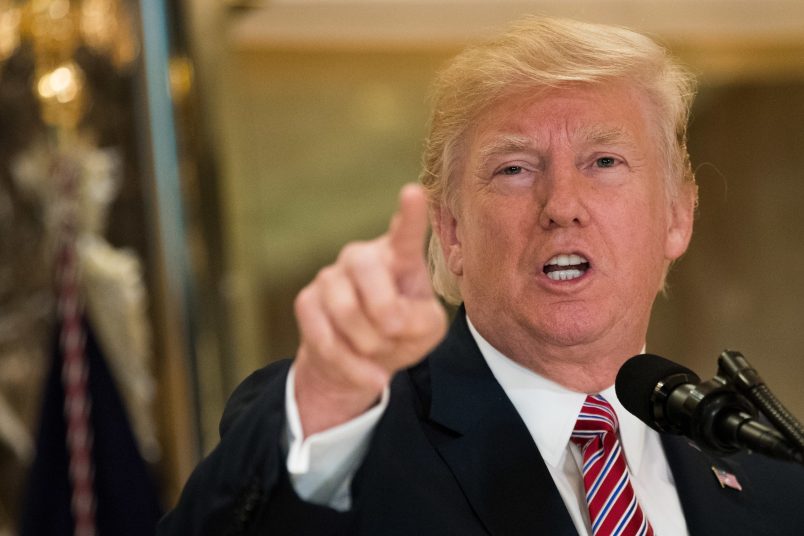A federal judge in D.C. on Monday asked for President Trump, the U.S. House, and New York state officials to come with a plan that would give Trump “very modest relief” in a dispute over a new New York law that allows the release of a president’s state tax returns to the House.
The House has not requested the tax returns yet. However, a comment by House Ways and Means Chairman Richard Neal indicating that House Democrats were looking into idea prompted Trump — in his personal capacity — to bring a court action seeking that such a request be preemptively blocked.
U.S. District Judge Carl Nichols said he was very skeptical of the arguments and proposals being put forward by Trump’s attorney Will Consovoy. But he was also vexed by the “conundrum” that he said the situation was putting him in: if the House made such a request, the New York state officials could grant it almost immediately (once it was determined that the request met the law’s requirement) without any notice being given to the President.
“I get that may be technically allowed, but it puts me in an awkward position,” Nichols said, while expressing frustration that neither the House or the New York officials would commit to give Trump time to litigate any hypothetical request for his state tax returns.
Nichols gave a couple of examples of the kinds of agreements the parties could put forward to avoid this scenario: the House could agree to give Trump some heads up before it made the request or the New York state officials could notify Trump once the request was received.
But the judge is putting it on the parties to negotiate the next steps. He said if they could not agree on a proposal by Tuesday, each party could put individual proposals for him to consider.
He gave the parties three conditions for the ideal proposal for the next steps: that it allows for the request to be litigated before a case is made moot by the records being produced; that it will allow for a request to be adjudicated when it is ripe, meaning that there will be an actual request for him to weigh; and that the agreement treads “very lightly if at all” on the separation of powers, and specifically the Speech and Debate Clause.
Much of the hour and a half of oral arguments focused latter issue. The House Ways and Means Committee, represented by House counsel Doug Letter, argued that blocking lawmakers from making the request would violate the Speech and Debate Clause, which gives lawmakers broad protections for actions and statements made in the legislative space.
Nichols, a Trump appointee who has only very recently joined the court, acknowledged that it would “problematic” for him to block the House from making its request for that reason, hence his request that parties negotiate some other next steps that would preserve Trump’s ability to bring a challenge to such a request.
Nichols also said the issue wouldn’t be ripe to litigate until there was a request from the House for the records, so that the judge could weigh whether it was a legitimate action within the House’s legitimate legislative sphere.
He told the parties to file a status report outlining a shared agreement or their individual proposals by 6 p.m. Tuesday.







Dems, there’s your opening. Request it tonight, have it in your inbox first thing tomorrow.
My plan would be to extend a ginormous middle finger to Trump, which I suppose shows why I am not a judge. Or a lawyer.
Judge should claim his Federal court has no jurisdiction over a state law until it has been adjudicated in state courts. Let it go there to die.
Say no more.
I propose the following: tell the judge where he can stick it. The law is clear as a bell, and I see zero reason why any public official should expect privacy concerning his payment, or lack there of, of taxes.